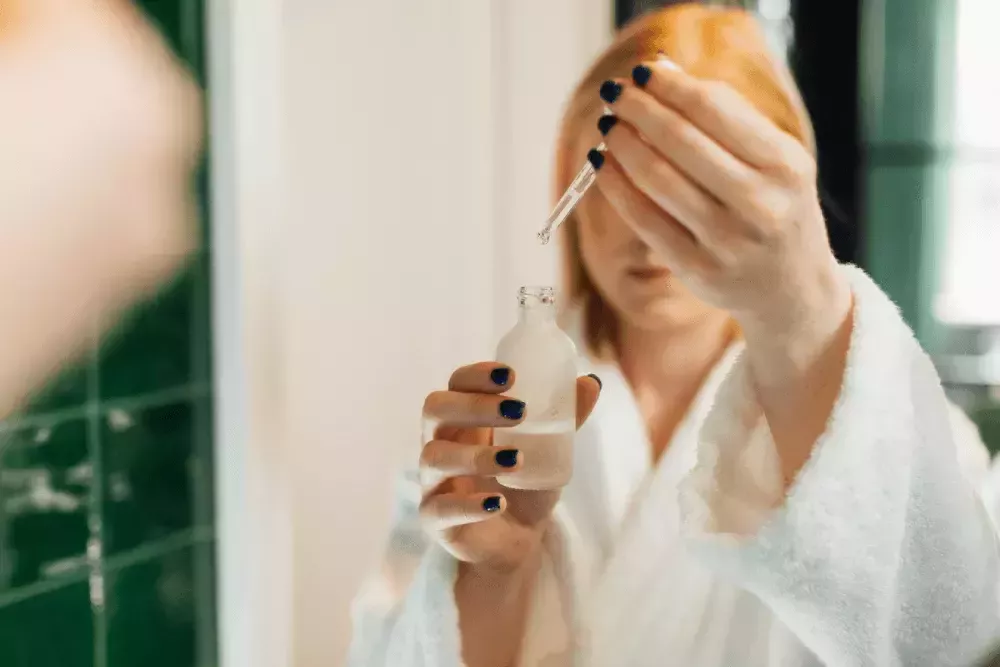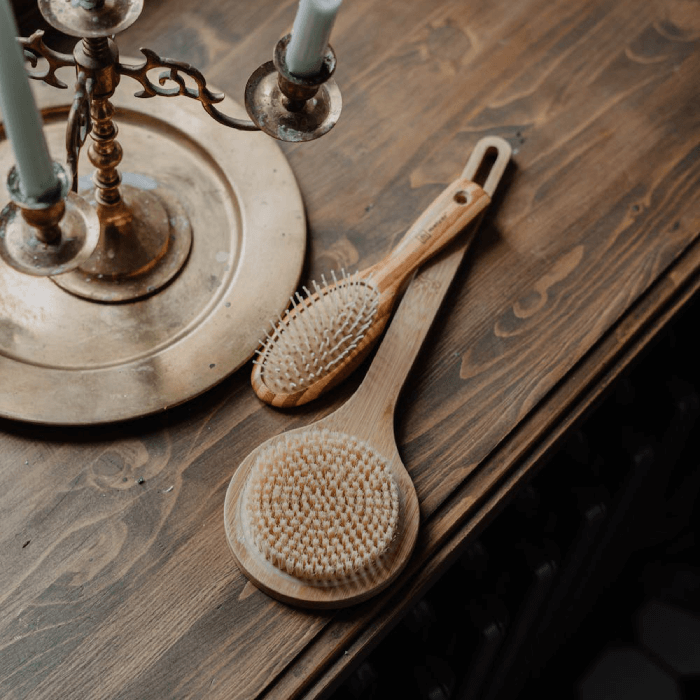Understanding Scalp Health: The Foundation of Gorgeous Hair
In pursuing beautiful hair, we often focus on the strands themselves, investing in shampoos, conditioners, and other hair products. However, we frequently overlook the most critical element at the root of it all: the scalp. Understanding scalp health is the first step to getting gorgeous hair. In this guide, we'll enter the world of understanding scalp health, explore its role in hair beauty, and provide you with healthy scalp tips to maintain a healthy scalp and luscious locks.
The Basics of Understanding Scalp Health
Before we dive into the role of the scalp in hair health, let's take a moment to understand the physiology of this often-overlooked area. To unlock the secrets of stunning hair, it's important to understand the scalp's pivotal role.
Scalp Anatomy and Function
Your scalp is more than just the skin on your head; it's a complex ecosystem of blood vessels, hair follicles, and sebaceous glands. Its major function is to provide a great environment for hair follicles to thrive. These follicles serve as the foundation of your hair, supplying essential nutrients and support for growth. Here’s how it does this:
- Blood Supply: The blood vessels in your scalp act as lifelines, delivering essential nutrients and oxygen to the hair follicles. Think of them as the garden hoses that keep your hair healthy and vibrant.
- Hair Follicles: These tiny, hair-producing factories are embedded deep within your scalp. They’re like the seeds in a garden. Each hair strand you see begins its journey right here.
- Sebaceous Glands: These glands secrete an oily substance called sebum, which lubricates and protects both your hair and scalp.
Now that we understand the role of the scalp in hair health, let's take a look at why its health matters so much.
Signs of Scalp Distress: Recognizing Red Flags
A healthy scalp is like a well-tended garden, - vibrant, lush, and free from issues. On the other hand, an unhealthy scalp signifies trouble for your hair. Recognizing the indications of common scalp issues and signs of scalp distress is crucial to understanding scalp health. Here are some signs you should be watching for:
Symptoms to Watch For
- Flaking: If you notice white flakes on your shoulders, it's usually an indication of dandruff. This common issue can be due to dryness, sensitivity, or a fungal overgrowth on your scalp.
- Redness and Irritation: An itchy, red scalp can be uncomfortable and often accompanies dandruff or other scalp conditions.
- Excessive Oiliness: While a little oil on the scalp is normal, an overly oily scalp can cause greasy, limp hair and even contribute to acne.
- Hair Thinning or Hair Loss: An unhealthy scalp can affect the hair growth cycle, potentially leading to thinning hair or hair loss over time.
- Dryness and Tightness: Dry, tight skin on the scalp can result in itching and discomfort, often due to insufficient moisture.
Lifestyle's Impact on Scalp Health
Now that you better understand scalp health, having uncovered the secrets of its anatomy and its important role in hair health, it's time to check out how your everyday life impacts this hidden hero.
Diet and Your Scalp
What you eat matters, not just for your waistline but for your scalp too. A balanced diet brimming with proteins, vitamins (like A, C, and E), and essential minerals supports healthy hair growth. You should also drink lots of water to keep your scalp moisturized and prevent dryness or flaking.
Stress and Its Effects on Your Scalp
Stress isn't just a mental burden; it can mess with your hair too. Too much stress might cause your hair to fall out. Managing stress through relaxing activities, exercise, or hobbies can restore harmony to your scalp and your life.
Pollution's Toll on Your Scalp
Your scalp faces dirt and pollution every day, from air pollution to UV radiation. These can damage your hair and scalp, leading to issues like dryness and sensitivity. You should always protect your scalp by wearing a hat and using hair products with UV protection.
Daily Habits for a Happy Scalp
Now that you know the importance of a balanced diet, stress management, and environmental protection towards understanding scalp health, let's examine the practical aspect of scalp care. Here are some healthy scalp tips to incorporate into your daily routine:
- Gentle Cleansing: Use a mild shampoo and conditioner that suits your hair type. Avoid overwashing, as it can strip your scalp of natural oils.
- Scalp Massage: Use your fingertips to massage your scalp in circular motions. This will enhance blood circulation and hair growth.
- Hydration: Apply a light moisturizer or oil to keep your scalp hydrated. Be careful not to use heavy products that can clog pores.
- Careful Styling: If you frequently style your hair, pick hairstyles that don't pull too tightly or too hard on your scalp. Too much pulling can make your hair fall out.
Solutions for Common Scalp Issues
If you're dealing with scalp issues, don't worry – we've got solutions.
For dandruff, use anti-dandruff shampoo containing ingredients like zinc pyrithione or ketoconazole. You can soothe itchiness with anti-inflammatory shampoo but avoid hot water while washing. If your scalp is too oily, try clarifying shampoo, and don't overwash. For hair thinning or loss, over-the-counter minoxidil products can help, or consult a dermatologist for advanced treatments like prescription meds or laser therapy.
While home remedies and over-the-counter treatments can address many scalp concerns, some issues require professional guidance. If your scalp problems worsen despite your efforts, don't hesitate to consult a dermatologist. They can pinpoint the root causes of your issues and recommend specialized scalp treatments.
Conclusion
Beautiful hair isn't just about appearance; it begins with the health of your scalp. By understanding scalp health, recognizing its warning signs, and embracing lifestyle adjustments and hair care routines, you're not only on the path to gorgeous hair but also adopting a holistic approach to hair care. Remember, the journey to gorgeous hair begins at the roots -a healthy scalp.






